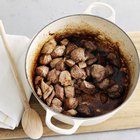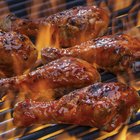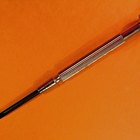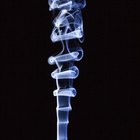
Camping with your family offers a few challenges, not the least of which is how to prepare hot meals in the wild. Using a propane camping stove can be a bit tricky if you are a novice camping cook, especially if you are accustomed to cooking on a flameless, electric stove top at home. However, cooking with a camping stove is considerably simpler than cooking over a campfire. This is because campfires, unlike camping stoves, produce irregular amounts of heat and are hard to control.
Outside Only
Just like you would never think of cooking with a propane grill inside of a house, you should never use a propane camping stove inside of a tent. The camping stove requires a well-ventilated area, and the claustrophobic confines of a tent pose too great of a risk for fire. Instead, set up your propane camping stove out in the open. If there is a risk of inclement weather, set up your stove under a tarp that is hung high up above the stove’s burners or under a large, well-ventilated screen house.
Against the Wind
When using your kitchen’s stove top, you typically do not have to contend with the wind, which, with a gas stove, can cause a burner’s flames to flicker or even go out. Fortunately, you can counteract the forces of wind gusts when cooking outdoors on a propane camping stove with the help of some aluminum foil. Form the aluminum foil into a large ring with tall, flat sides. Then, place the ring under the stove’s cooking grate so that it forms a protective barrier around the underlying burner. In addition to blocking the wind, this aluminum foil ring will help center the heat from the burner on to the pot or pan resting on the grate above.
Problem Prevention
During the cooking process, you should never leave a propane camping stove unattended, especially if you are camping with children. To prevent accidental fires, keep flammable materials -- like newspapers and polyester articles of clothing -- away from the stove when the burners are hot. Never put a propane camping stove directly on the ground, a picnic table or another surface, as this can be a fire hazard and can stifle the circulation of air needed for adequate cooking. Instead, prop the stove up on a stand -- most stoves come with attached stands. If you happen to be camping in the winter or in especially cold locations, avoid placing metal stands on the frozen ground. This is because the stands can melt the underlying earth and cause propane camping stoves to fall over.
Canister Considerations
The small propane canisters that fuel propane stoves are under intense amounts of pressure and if conditions are right -- or wrong, depending on how you look at it -- have the potential to explode. For best results, always store propane canisters upright in well-vented areas that are away from open flames, such as the flames coming from a campfire or a camping stove’s pilot light.
Cooking
Cook some soups and stews before you leave, then pack them on ice in a cooler. You can heat up the meals over the propane camping stove without worrying about underdone meat. On your last morning at the campsite, make omelets using leftover meat and vegetables so you don't have to take leftovers home. Stir dry ranch-flavored seasoning mix in with the eggs before cooking for a tasty flavor kick. Eggs cook quickly, so they won't eat up your remaining propane.
Related Articles

The Safety of Refrigerators and ...

How to Cook With a Gas Fireplace

How Do I Cook a Hot Dog on a Fire?

How to Cook With a Gas Tank

How to Fold a Graco Stroller

Can Ceramic Cookware Be Used on ...

How to Cook a Pork Chop on a Dome ...

Treatment for Tent Mold & Mildew

How to Use a Weber Gas Grill: First ...

Are Halogen Heat & Infrared Waves Safe ...

How to Cook Chicken in a Crockpot & ...

How to Change a Fossil Watch Battery

How to Troubleshoot a Fog Machine

How to Light a Propane Barbecue Grill

Appliances That Use Solar Energy

Parts of a Hair Dryer

Can I Cook With Porcelain Enamel on a ...

What Are the Dangers of Kids Playing ...

How to Troubleshoot a Citizen Skyhawk ...

Does Lemon Juice Help Keep Raw Eggs ...
References
Resources
Writer Bio
Erik Devaney is a writing professional specializing in health and science topics. His work has been featured on various websites. Devaney attended McGill University, where he earned a Bachelor of Arts in humanistic studies.
Photo Credits
Photodisc/Valueline/Getty Images